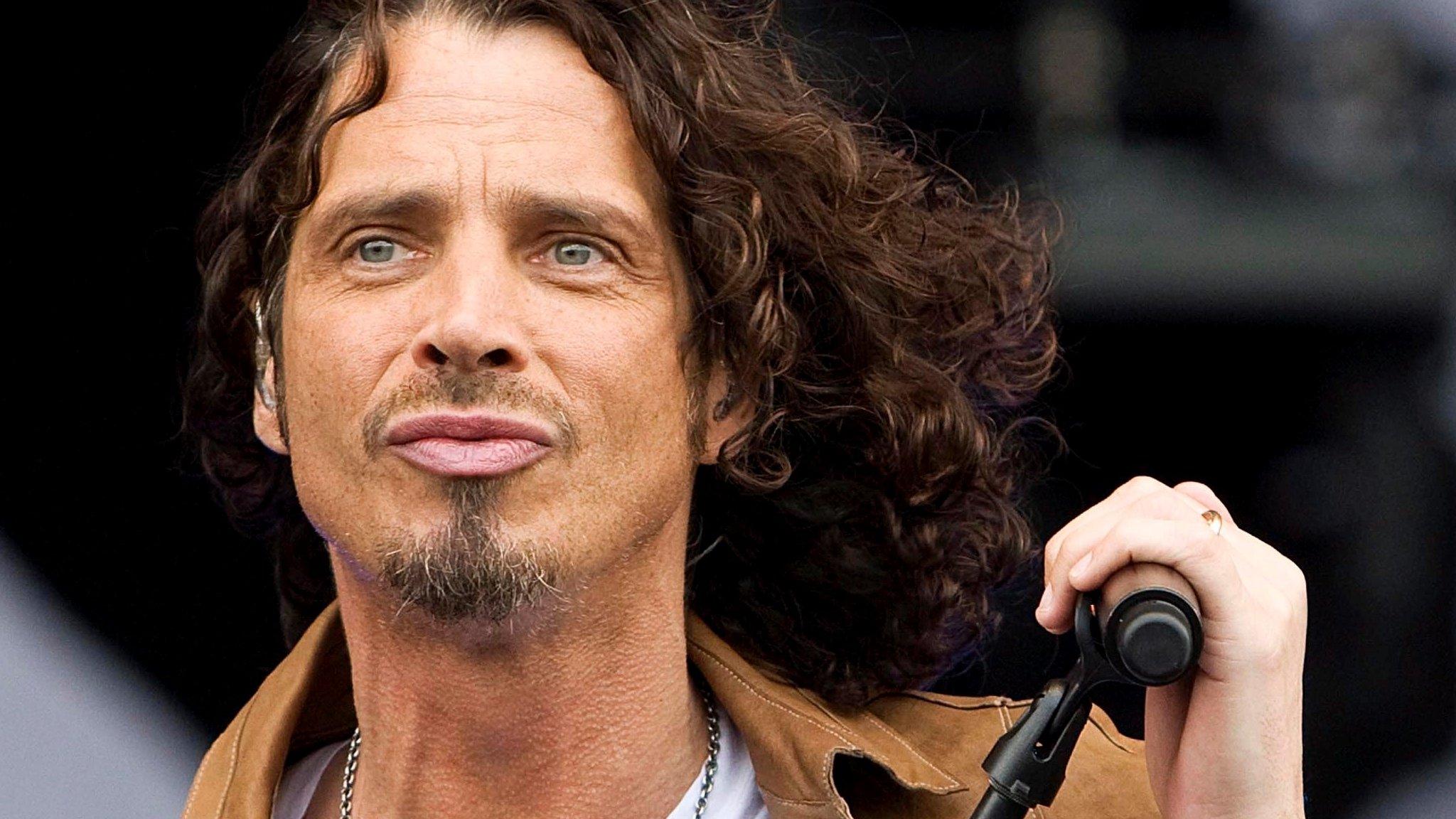Chris Cornell - so much more than a grunge star
- Published
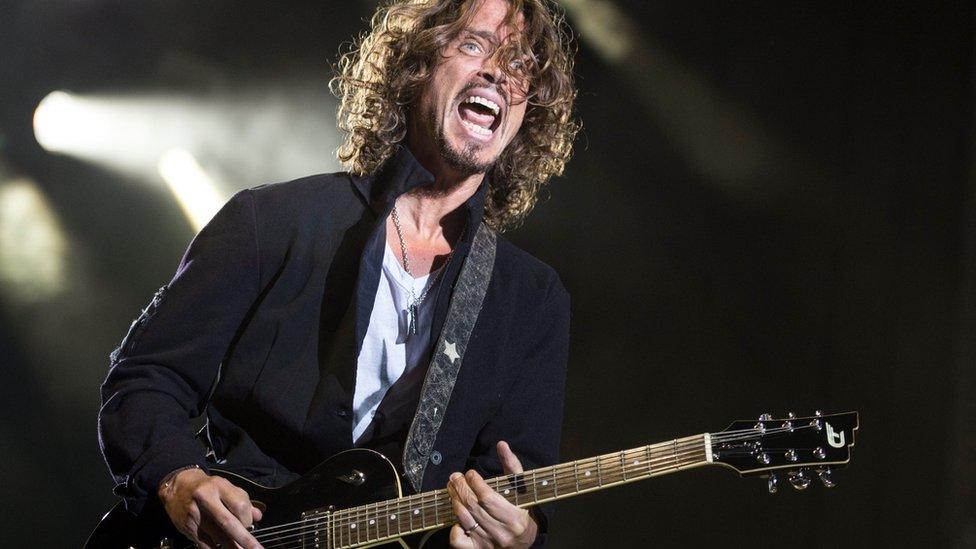
Chris Cornell was one of the defining voices of grunge music - his bluesy, multi-octave voice becoming Soundgarden's not-so-secret weapon.
Born in Seattle, Washington, in 1964, he developed an interest in music while at school - especially with The Beatles - which led to him learning the piano.
But he spent most of his teenage years a loner, afflicted by agoraphobia and anxiety, until rock music helped him overcome his uneasiness around others.
After dropping out of school, he bought a drum kit and played in various local bands, which brought him into contact bassist Hiro Yamamoto and guitarist Kim Thayil, with whom he formed Soundgarden in 1984.
The band was named after an art installation in Seattle's Sand Point.
Cornell initially played the drums while singing, but was able to concentrate on vocals after a drummer was recruited in 1985.
In Soundgarden, he slowed the frenetic flammery of '80s metal to a sombre crawl, earning the band comparisons to Black Sabbath and Led Zeppelin.
Although they started out on Seattle's Sub Pop label (their debut EP, Screaming Life was the label's second release), they were the first grunge band to sign to a major label.
In 1994 the band's breakout fourth album Superunknown spawned worldwide hit Black Hole Sun.
The song's surreal and nightmarish video became an MTV favourite and won Best Metal/Hard Rock Video at the 1994 MTV Video Music Awards.
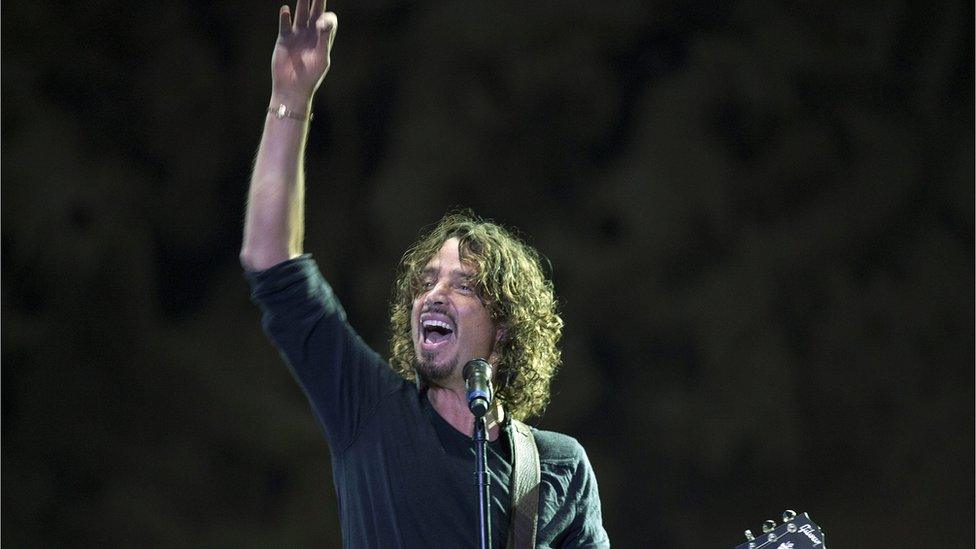
It remains their most enduring hit. Spotify lists more than 50 cover versions, with everyone from Anastacia to Paul Anka drawn to its pretty melody and dreamlike lyrics.
Even Cornell wasn't sure what it was about. "I was just sucked in by the music and I was painting a picture with the lyrics," he once said. "There was no real idea to get across."
While the song defined the band, there was no pinning Cornell down.
He wrote for other acts, including Alice Cooper, and formed Audioslave with the remnants of experimental rock act Rage Against The Machine.
With them, he played Cuba's first ever outdoor concert by an American rock band; while in later years he worked with hip-hop producer Timbaland and released a solo acoustic album, Songbook, which put his remarkable vocals front and centre.
Soundgarden disbanded in 1997 and reunited in 2010. Cornell went into rehab in 2003 after struggles with addiction to drugs and alcohol.
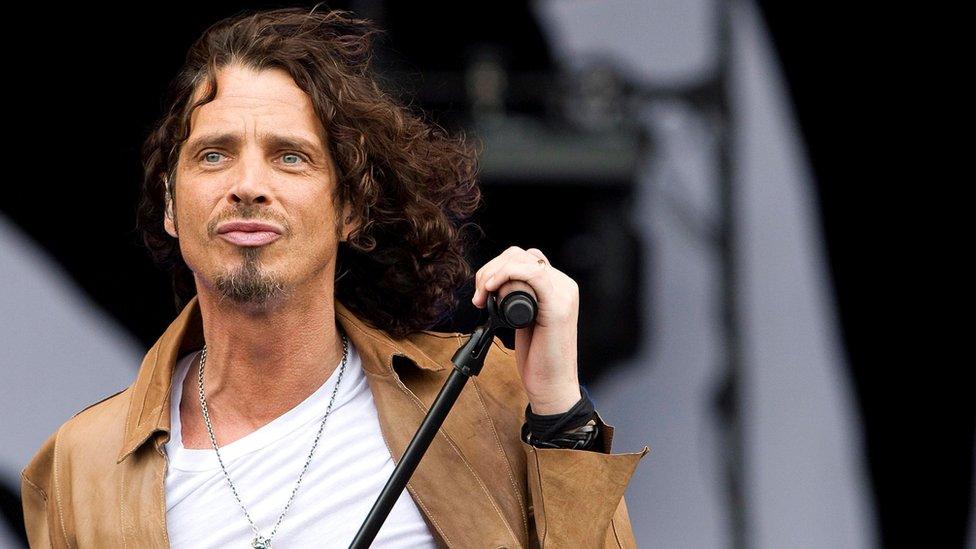
His Casino Royale Bond theme in 2006, You Know My Name, may not be a classic of the genre - but in framing Daniel Craig as a new, leaner, tougher 007, it was an uncompromising success.
He wrote the end title song Live to Rise for Marvel's The Avengers and his song Misery Chain, a duet with Joy Williams, appeared on the soundtrack of the Oscar-winning film 12 Years A Slave.
Cornell's song The Keeper from Machine Gun Preacher was nominated for a Golden Globe in 2012.
Like all great musicians, he was curious and fearless. His greatest regret of the grunge scene was that Seattle's experimental bands, the ones playing free jazz and Gothic rock, got left behind because they didn't fit the music industry's narrative.
"It's like somebody came into your city with bulldozers and water compressors and mined your own perfect mountain and excavated it and threw out what they didn't want and left the rest to rot," he told Rolling Stone in 1994. "It's that bad."
His untimely death means that, after Kurt Cobain, Layne Staley and Scott Weiland, yet another of grunge's leading lights has been extinguished.
To those who knew him, the loss will be even greater.
Cornell is survived by his wife Vicky, whom he married in 2004, and their two children. He also had a daughter with first wife and former manager Susan Silver.

Follow us on Facebook, external, on Twitter @BBCNewsEnts, external, or on Instagram at bbcnewsents, external. If you have a story suggestion email entertainment.news@bbc.co.uk, external.
- Published18 May 2017
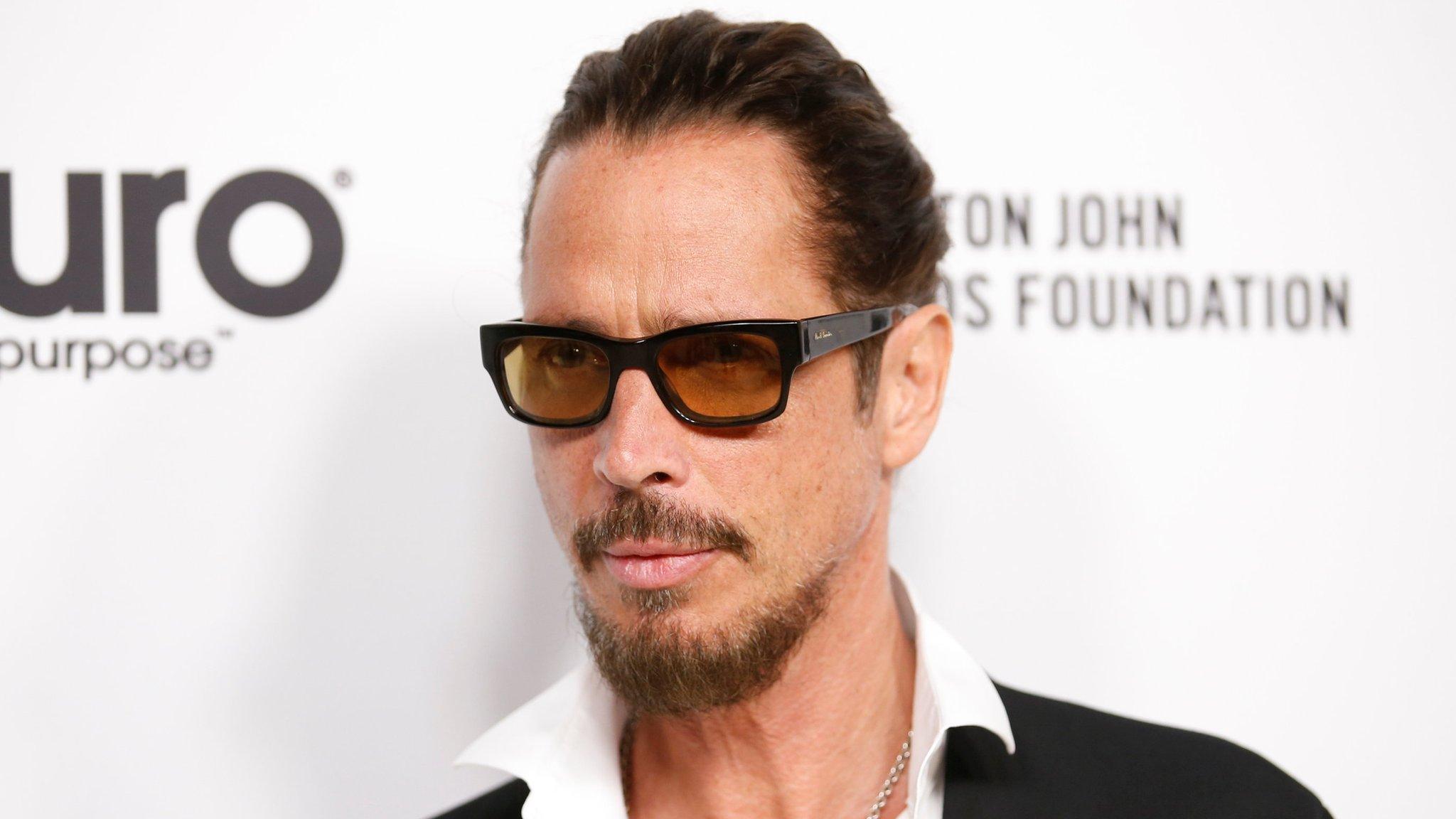
- Published18 May 2017
